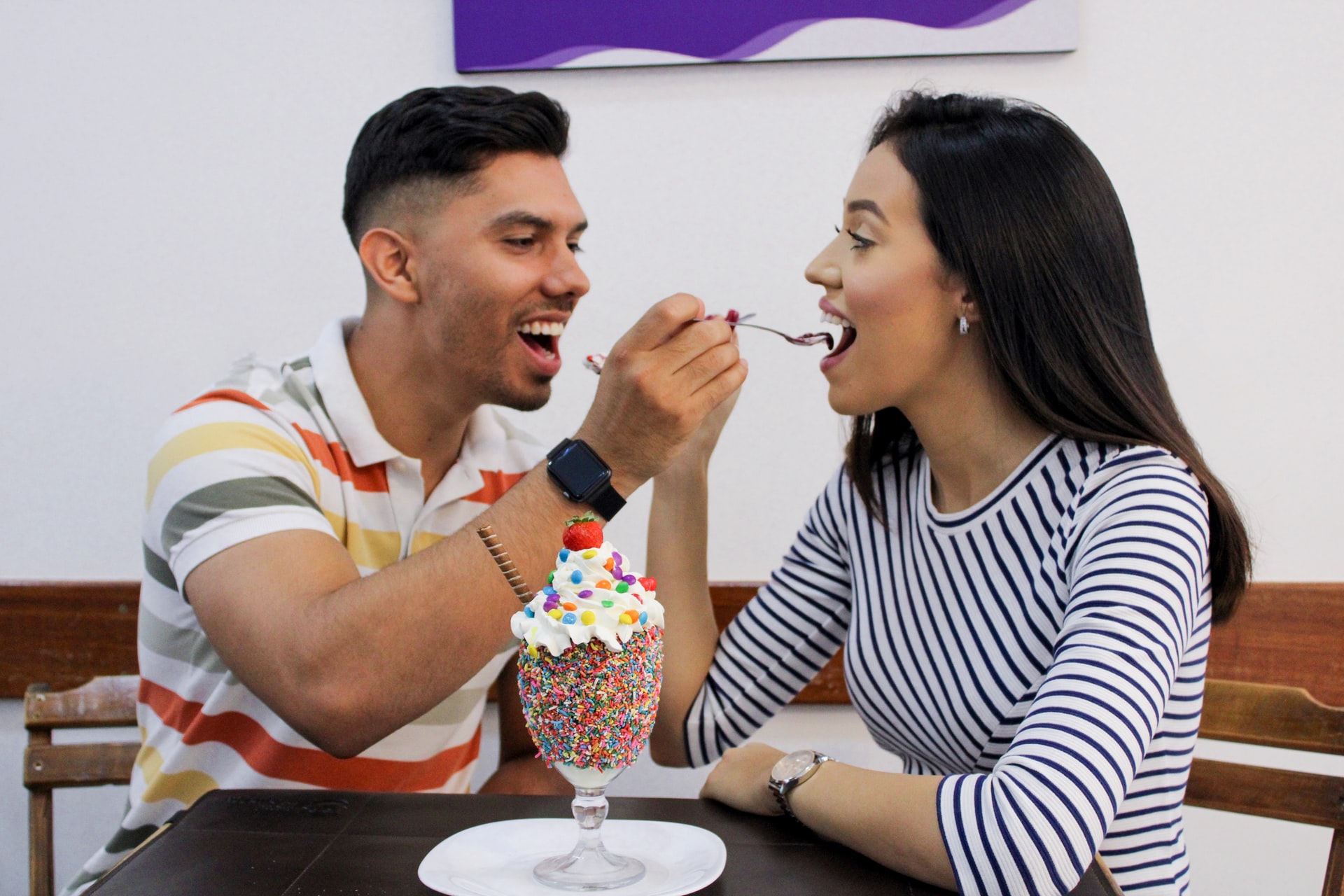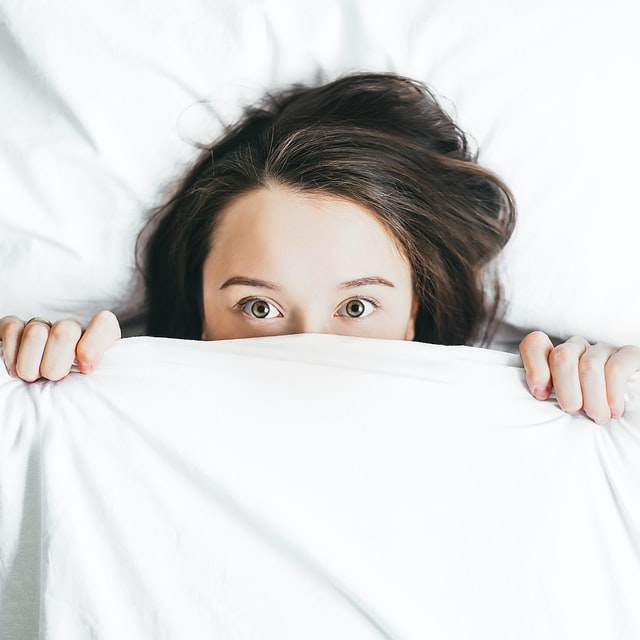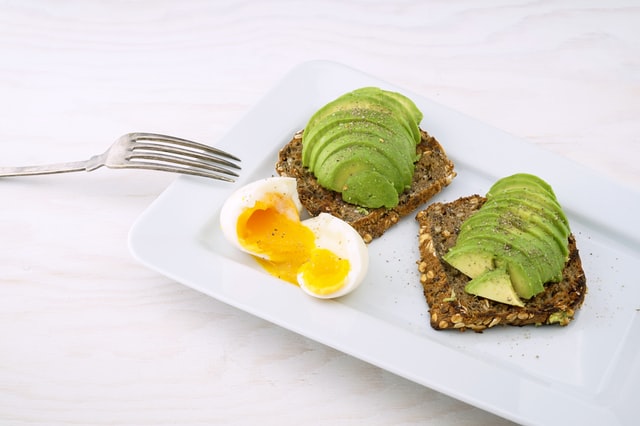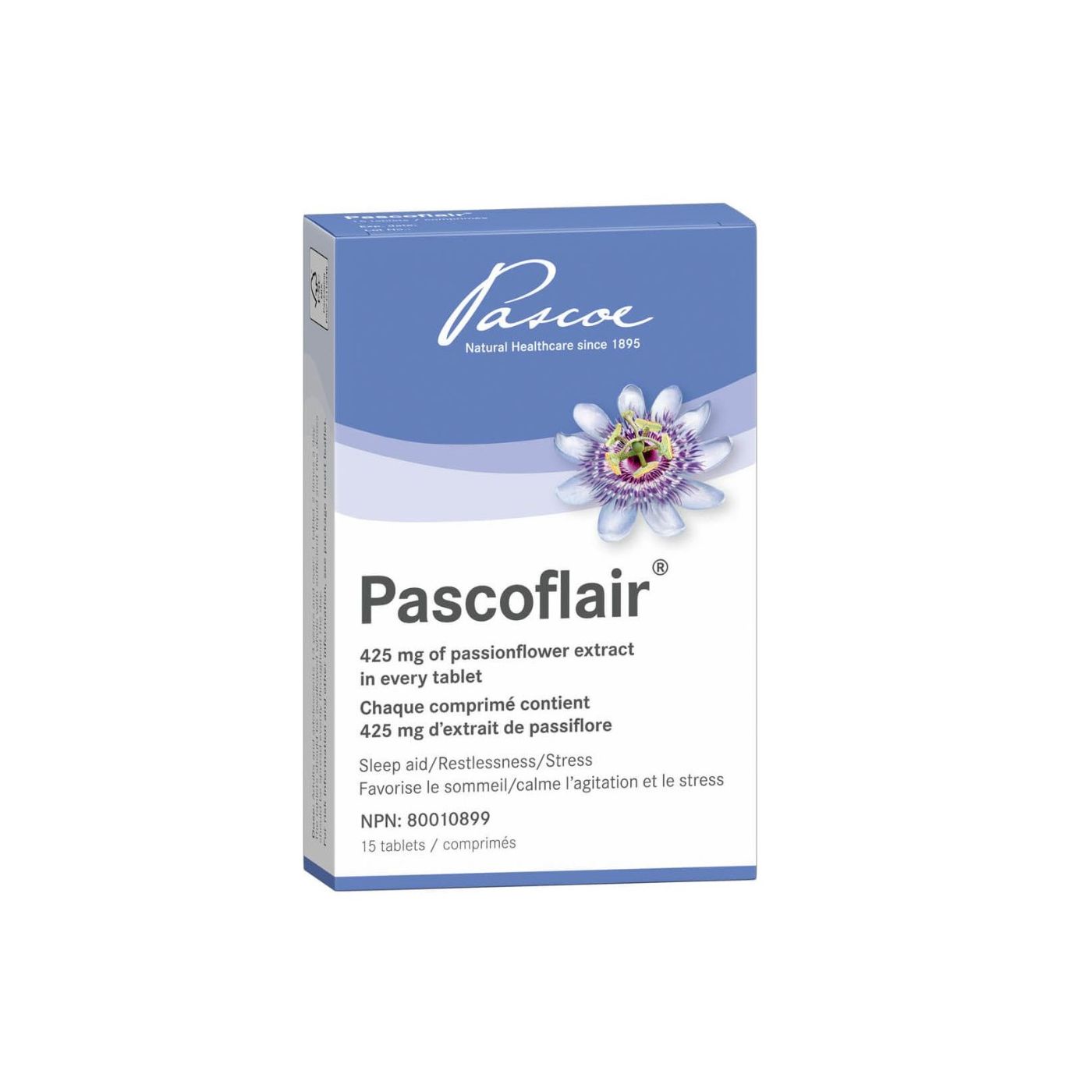Struggling with Emotional Eating? Your Anxiety Loves Sugar!
On those days where everything that could go wrong does and you're anxiety feels like it's through the roof, sometimes a warm fudgy brownie with a bowl of ice cream offers the perfect comfort. And sometimes not.
No less than 10 minutes later after you eat, your feel-good favourite has the opposite effect. It causes your symptoms of anxiety disorder to worsen. You may start to experience uncontrollable panic attacks, muscle tension, and difficulty concentrating. So, is sugar really that bad? Yes and No. It is not inherently bad or evil, and in moderation, sugar won't shave years off your life. Although sweets are not exactly what some would subjectively deem as "healthy" to eat, they can and do bring joy to life. However, when emotional eating becomes a coping mechanism for anxiety disorders or other mental health problems, it might be time to check in on your emotional concerns, diet habits, and triggers.
Anxiety Disorder Overview
Simply defined, anxiety is a state of fear, uncertainty, and apprehension from the anticipation of an imagined or real threat. No one is safe from stress disorders or symptoms of anxiety. But when your mental health concerns interfere with a normal lifestyle, mediation is necessary. The majority of symptoms of anxiety disorder in men and women are similar but variance occurs in how anxiety is expressed and experienced.


There are various mental health subtypes and symptoms within the anxiety disorder classification:
- Agoraphobia is a mental disorder that refers to the avoidance of certain situations, places, and circumstances. The anxiety disorder results from the fear of feeling out of control, trapped, or helpless. There is an association between agoraphobia and strong feelings of anxiety or panic attacks when individuals are away from their "safe zone".
- Panic Disorder is defined as an abrupt and intense fear and terror that heightens within minutes. Panic disorders or anxiety attacks are triggered even when there is no real threat or apparent cause. Symptoms of panic disorders and panic attacks include light-headedness, racing heart or palpitations, sweating, feeling out of control, and shortest of breath.
- Generalized Anxiety Disorder: is an anxiety disorder defined as chronic and excessive worry about normal activities or lifestyle events. Generalized anxiety disorder often co-occurs with depression and anxiety disorders. Many people with generalized anxiety disorder often have symptoms for six months or more. Physical symptoms of this mental health condition and anxiety disorder include chest pain, strong or fast heartbeat, muscle tension, shortness of breath, and excessive sweating.
- Social Anxiety Disorder: A disorder where people feel anxious in social settings. Social anxiety disorder co-occurs with other anxiety disorders. Those with social anxiety disorder, aka social phobia, experience anxiety-related symptoms. Symptoms of social anxiety stem from feeling excessive self-consciousness. Those with this anxiety disorder also fear being judged and watched by others or humiliated by their own actions.
- Obsessive-Compulsive Disorder (OCD): Individuals with obsessive-compulsive disorder (OCD) struggle with unwanted thoughts and actions that feel impossible to stop. Individuals with this mental health condition and anxiety disorder may believe that if they stop worrying or performing repetitive behaviours a traumatic event or something life-threatening will occur. Examples of obsession signs and symptoms of this anxiety disorder include intense stress when objects aren't in a certain position, doubts that the stove is turned off or the door is locked, and avoidance of behaviours that trigger obsessions.
- Phobias: although everyone is afraid of something, those with phobias have extremely rational and irrational fears. Common phobias of this anxiety disorder are fear of small places, heights, germs and flying. Those with specific phobias have symptoms of anxiety disorders. Specific phobias are the most common types of anxiety disorders.
- Other anxiety disorders include separation anxiety disorder, selective mutism, and post-traumatic stress disorder (PTSD). While not classified as an anxiety disorder, people with PTSD experience many symptoms of anxiety and depression.
Why Food?
Negative emotions due to depression, anxiety symptoms, and other mental health conditions often lead to a feeling of emptiness or an emotional void. As a result, people turn to food when they are anxious to provide a false sense of filling a void and as a source to provide temporary wholeness.
The Effects of Sugar on the Brain
Your sweet treat has more power over you than you think. Sugar has a robust impact on the reward system in the brain. When individuals engage in behaviours (like eating sugary foods) that the brain perceives as pleasurable, high surges of dopamine are released. This feel-good hormone sends a signal that reinforces what you just did (eat something sweet) is good. So, we keep wanting and craving it, more and more. The problem is that not only does our blood sugar levels spike quickly, but our blood sugar crashes even faster. We are left in a hypoglycemic episode - feeling emotional and physical symptoms like sluggishness, lethargy, and a low mood. For some, this feeling of unease can even mimic a panic attack or put the body into a stress response, also known as the fight-or-flight response. In fact, a study published in 2017 found that regular consumption of added sugars increased the chance of mood disorders, like anxiety symptoms and depression, in men. It also found that it increased the risk of recurrent mood disorders, such as depression and anxiety symptoms, in both men and women. Obviously, our bodies work hard to avoid to ease stress, depression or anxiety symptoms. And so we reach for another bowl of Ben and Jerry's, because food makes us feel good...temporarily. Until the next crash. And so the vicious cycle continues.
At the same time, when the body is under duress and feeling anxious, your stress hormone (cortisol) rises. When cortisol goes up, insulin simultaneously goes down. Insulin is a hormone that regulates carbohydrates, fats and protein by using glucose for energy. Now we have a double whammy. Not only have your blood sugar levels spiked due to stress-eating sugary foods, but your insulin levels have also dropped. This causes you to store the excess sugar and carbohydrates as fat since it's not being used by your body right away for energy. This can amplify the drastic drops in mood, worsen anxiety disorder or symptoms of depression.
Sugar Affects Your Sleep...
Coffee isn't the only drink that is keeping you up at night. A diet high in sugar may also affect your sleep and is a risk factor for reduced sleep quality. Caffeine-laden drinks like Mountain Dew, Pepsi, and even hot chocolate are famous for their sugar and caffeine content. Besides drinks, your favourite high-sugar foods are a source of caffeine. Did you know that caffeine is hiding in your icecream and candy bars? A study performed by the Journal of Clinical Sleep Medicine found that individuals who consumed more sugar spent less time in deep, slow-wave sleep. The participants took longer to fall asleep and experienced more restless sleep with frequent awakenings throughout the night. This is significant since even partial sleep deprivation has a significant effect on mood, including anxiety symptoms and depression. You probably know first hand that after a sleepless night, you may be short-tempered, and more vulnerable to stress and symptoms of depression.
...and Hurts a Healthy Gut Too
Our gut, also known as the "second brain" is linked to the brain via the nervous system. In fact, there are more nerves in our gut than in our spinal cord. It only makes sense that the health of the microbiome will influence our mental health, right? Recent studies are finding that a diet high in simple sugars and processed foods are negatively altering our gut microbiota. More


so, high sucrose consumption can lead to a higher risk of gut permeability and has been linked to anxiety disorders and depression.
Kick Your Cravings
Like many of us working at home due to the COVID-19 restrictions, your kitchen pantry is probably not too far away. The sinister combination of stress, anxiety disorders and boredom can lead to some unhealthy diet behaviours. Especially since emotional eating provides instant relief. But until you address your emotional needs and the source of your anxiety disorder head-on, the cycle typically won't end.
- Remove Temptations: sometimes out of sight out of mind is not enough. Completely removing the sweet treat from your living space is necessary to practice self-help. Not forever, but during this stressful time.
- Prioritize Protein: Protein is an extremely satiating macronutrient to include in your diet and can help you modulate food intake. Unlike when you eat carbohydrates and sugary foods, protein in moderation won't be stored as fat or impact blood sugar. Aim to eat smaller balanced meals every 3-4 hours to stabilize blood sugar, maintain energy, and help to avoid the risk of unruly hunger pangs during the day.




